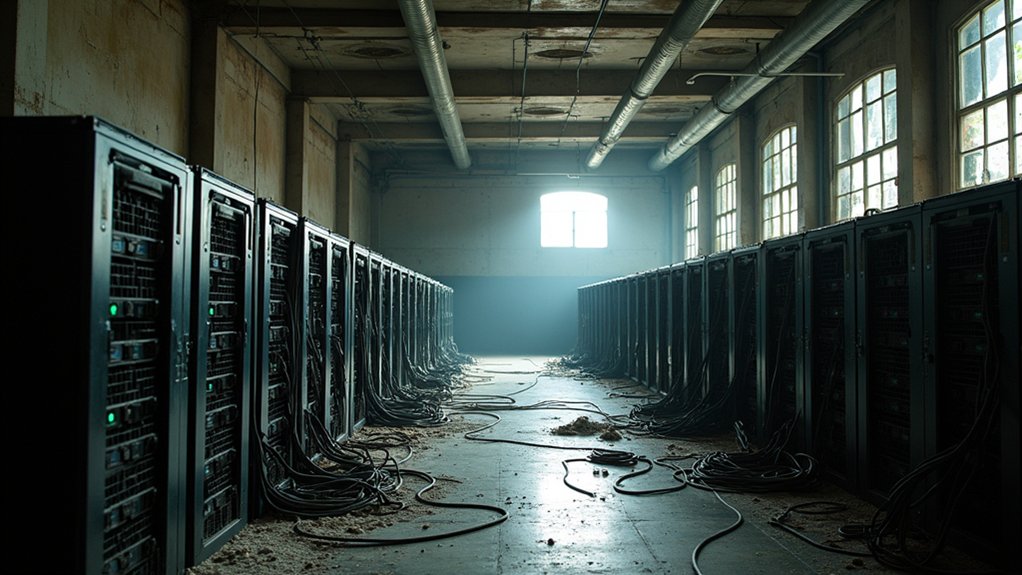While China’s cryptocurrency crackdown was already in full swing, nobody expected the spectacular implosion of a $14 million Bitcoin mining operation in rural China. The massive facility, once a symbol of crypto prosperity in the region, now stands as a stark reminder of how quickly fortunes can change in this volatile industry.
The operation had everything going for it – state-of-the-art cooling systems, rows of high-end mining rigs, and enough computing power to make a supercomputer jealous. It employed dozens of locals and pumped millions into the regional economy. Not bad for a bunch of computers solving math problems, right? The situation drew attention from firms like BlockTower Capital, which manages $150 million in crypto assets and closely monitors such large-scale operations. The facility’s specialized ASIC hardware represented millions in equipment investments alone.
But then reality hit. Hard. Power shortages plagued the region, making it increasingly difficult to keep those energy-hungry machines running. The farm’s massive electricity consumption – equivalent to powering a small town – didn’t exactly help its case with environmental regulators.
And let’s not forget China’s aggressive stance against cryptocurrency, which turned once-thriving mining operations into overnight outlaws. The venture capitalists who backed this operation are probably kicking themselves now. Their high-tech investment transformed into an expensive paperweight faster than you can say “blockchain.” The China’s BSN blockchain network had already begun expanding globally, signaling the country’s shift away from traditional crypto mining.
The collapse sent shockwaves through the crypto mining community, with similar operations in Kazakhstan and the United States watching nervously. The environmental impact was no joke either. Despite attempts to integrate renewable energy sources, the farm’s carbon footprint remained massive.
Cooling systems guzzled water, and the constant hum of mining rigs created their own ecological concerns. When operations ceased, they left behind more than just disappointed investors. The facility’s demise highlights the perfect storm of challenges facing crypto mining operations: regulatory uncertainty, environmental scrutiny, and the ever-present volatility of cryptocurrency prices.
As China pushes forward with its own central bank digital currency, the writing was probably on the wall for operations like this one. Sometimes even a $14 million investment isn’t enough to overcome the combined forces of government regulation and market reality.





